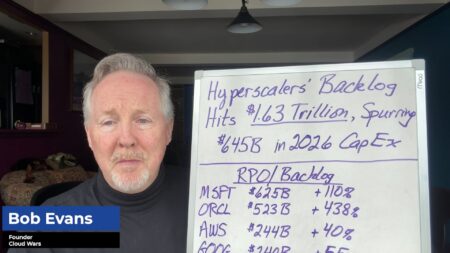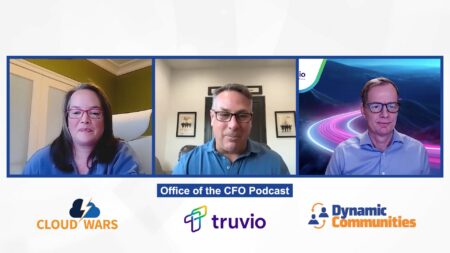Significant technology shifts use to happen once in a generation. Now, powered by platforms and universal access to connectivity and powerful devices, it seems to happen every 5 – 7 years. A powerful new platform is emerging that business, brand, and marketing leaders are watching largely driven by digital natives – the metaverse.
Businesses and brand leaders stumbled their way through the emergence of radio, TV, the Internet, and social platforms. With all these, one truth about paradigm-shifting platforms has been consistent. Change-minded leaders who move first, invest in user delight and engagement, and can build large communities fast are poised to win bigger. The metaverse’s accelerated rate and levels of engagement are intriguing marketers. While it is still early days, marketers are starting to pay attention.
Why are Brands Flocking to the Metaverse?
Early brand interest in the metaverse is being driven by the increasing levels of consumer engagement. Brands are particularly interested in the metaverse because Gen-Xers and millennials are active, drawn to, and spending meaningful time in this virtual environment. Furthermore, this coveted, growing group of consumers is fragmented, and therefore, difficult for brands to reach through other channels and venues. For brands that value large, engaged audiences, the metaverse is becoming hard to ignore.
What started as the metaverse for gaming apps like Fortnight and Roblox has been accelerated by brands like Vans, Wendy’s, Hyundai, and Disney. These leading brands are creating unique experiences, providing virtual collectible apparel, and delivering avatar interaction with people that share the same passions. Using these brand examples, the areas of passion are skateboarding, food fights, cars, and entertainment.
To get a real sense of what’s happening, let’s take a quick look at the metaverse trends and a few of the first-movers’ learnings. Vans built a virtual skatepark via Roblox, generating up to 48 million users per day. Nike recently purchased RTFKT agency to accelerate their ability to create non-fungible tokens (NFTs) for digital collectibles. Another example of metaverse acceleration is Gucci’s creation of Gucci Garden. This metaverse-powered virtual world allows your avatar to move from room to room, exhibit to exhibit changing and experiencing apparel in different colors and styles.
What are the Metaverse Marketing “Must-Haves”?
Like every new platform, there are must-haves for marketers as they develop their strategy and experiment with what’s possible in the metaverse. Here are a few essentials the metaverse marketers and first-movers have identified:
- It is all about the user: The metaverse is the ultimate example of user generated content and participation. For marketers, metaverse enables marketers to inject their brands natively into that platform and experience in a way that makes each user the star of the show.
- Immersive experiences are the value: The metaverse is a virtual universe that merges reality and the virtual world. These virtual worlds continue to evolve and grow based on user decisions and interactions within the space. Marketers talk about “experiences” all the time. This is the ultimate canvas to create authentic, immersive user experiences developed for the virtual world.
- Don’t try to create the physical world in the metaverse: This is non-negotiable. Think big and creatively. Enlist groups of your target audience to help your brand build impactful, must-see experiences. Help consumers stretch their mind to understand what’s possible.
- Boring display ads won’t work in the metaverse: Social platforms like Facebook, Google and Instagram use advertising and paid sponsorships as a primary economic model. This will not work for the metaverse. Rather, marketers can offer metaverse users value via experiences, virtual goods, or digital collectibles for their digital avatars.
- Traditional marketing campaigns goes away in the metaverse: Today, marketers and their agencies deliver so much to their target audiences through weekly/monthly/quarterly “campaigns.” Turning engagement on and off on brands’ timeline versus consumers timeline won’t cut it. The metaverse is always-on and marketers must think this way, too.
How Can a Business Get Started in This Virtual World?
A popular entry point for non-gaming brands is via virtual conventions in the metaverse. Consumers and business customers alike can experience so much without leaving their office or house (something we have all become used to courtesy of the pandemic and resulting lockdown). Experiencing new cars at an auto show, previewing new technology via a demo at a tech conference, or trying on the latest line of shoes or fashion are all immersive experiences to experiment with.
The key, like for all marketing strategies and programs, is to understand where your target audience is spending their time and study their preferences. Because it’s literally a whole new world, marketers can be creative and experiment. Even better at this stage, marketing costs are still quite low compared to many digital programs. And, right now, thousands of brands are not competing for attention in the metaverse. With all the first mover advantages, it is important to point out that the ability to measure and get granular performance data will be limited. Marketers are confident that the metaverse metrics and ROI will catch up as adoption accelerates.
With new tech like the metaverse, it is best to organize a small, agile innovation team. Dedicating a few pros to explore and experiment and who aren’t bound by traditional marketing development processes is a smart approach to get started. If you are not ready to commit to an in-house team or don’t have the in-house talent, hire an agency. This allows brands to trial and learn while not slowing down other critical marketing work you need to hit your goals today.
What’s Holding Your Brand Back From Experimenting in the Metaverse?
While many marketers are jumping into the metaverse, it’s not too late for your brand to get started. With a curious mindset and rigorous process, marketers can determine if the metaverse is a platform and environment right for their brand.
Want to compete in the Metaverse? Subscribe to the My Metaverse Minute Channel:










